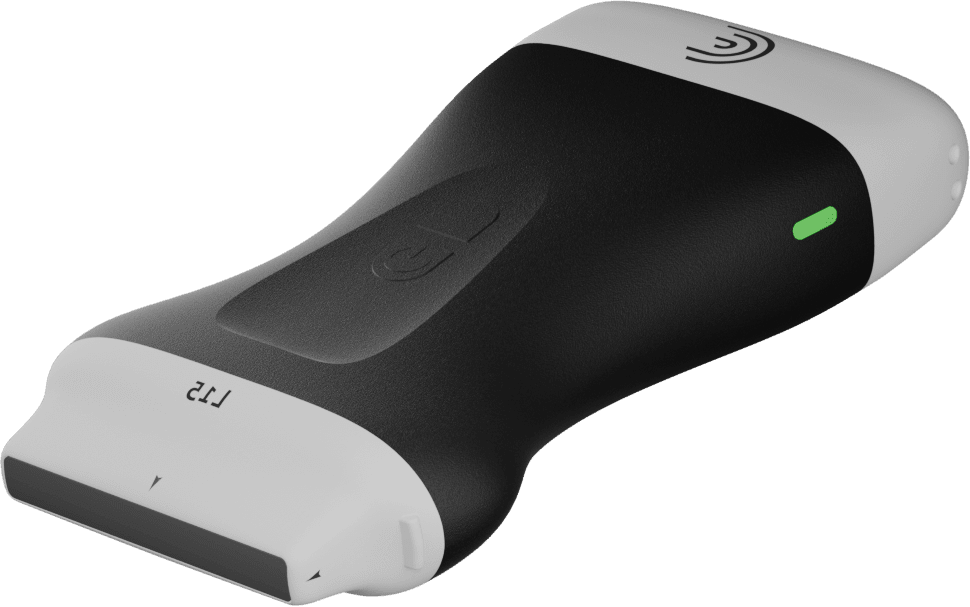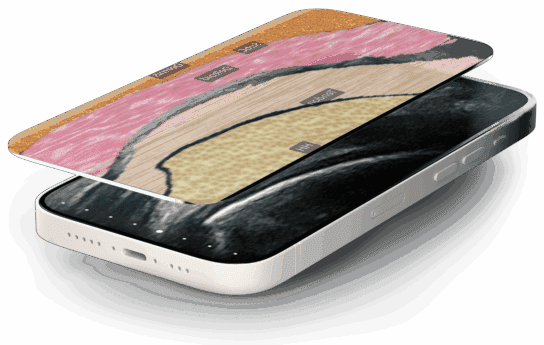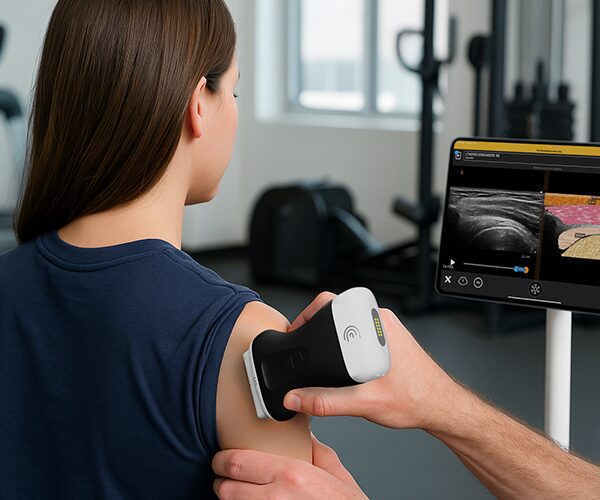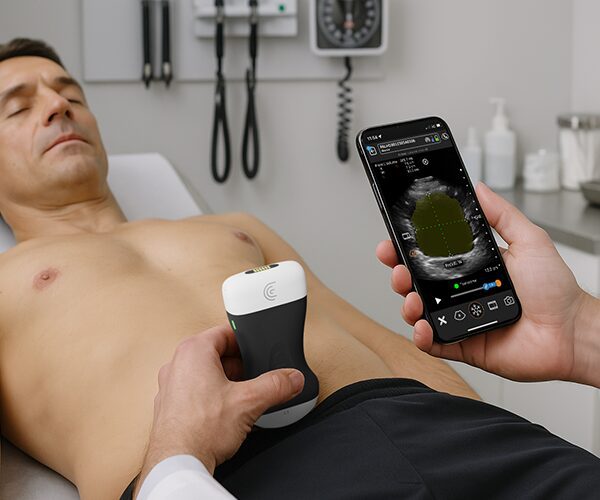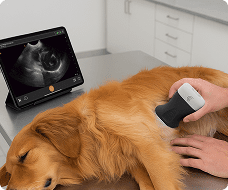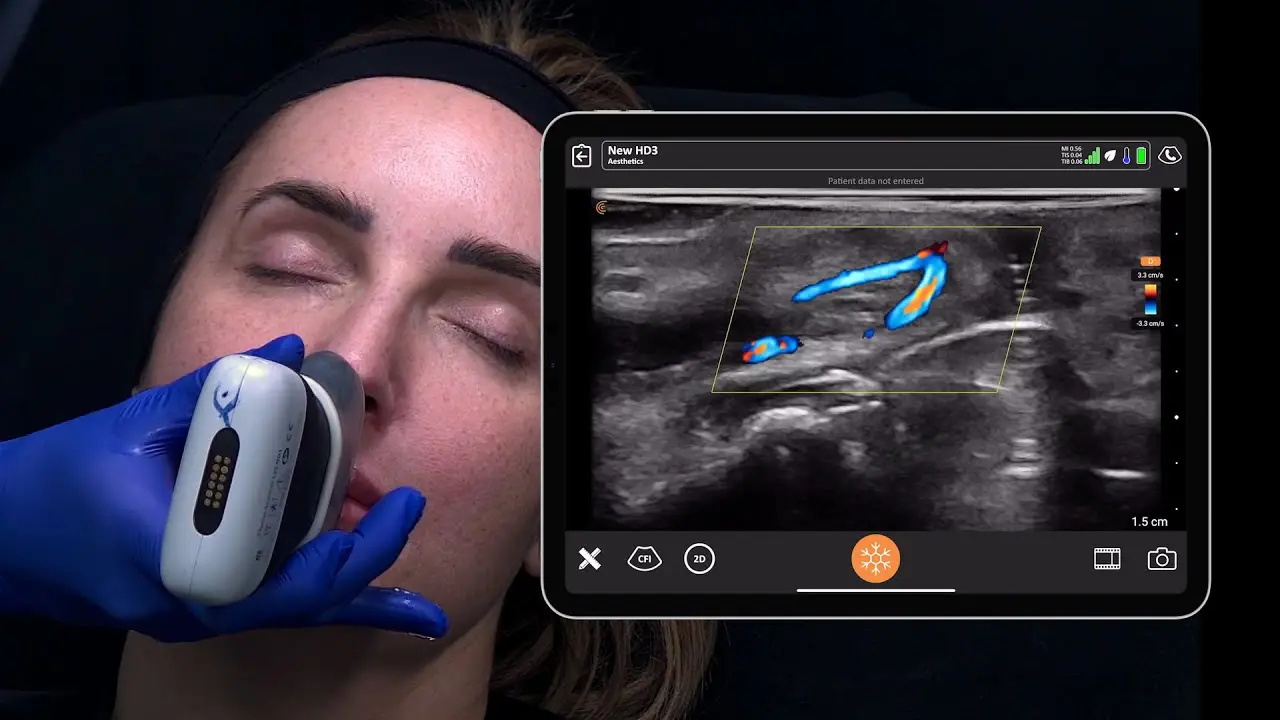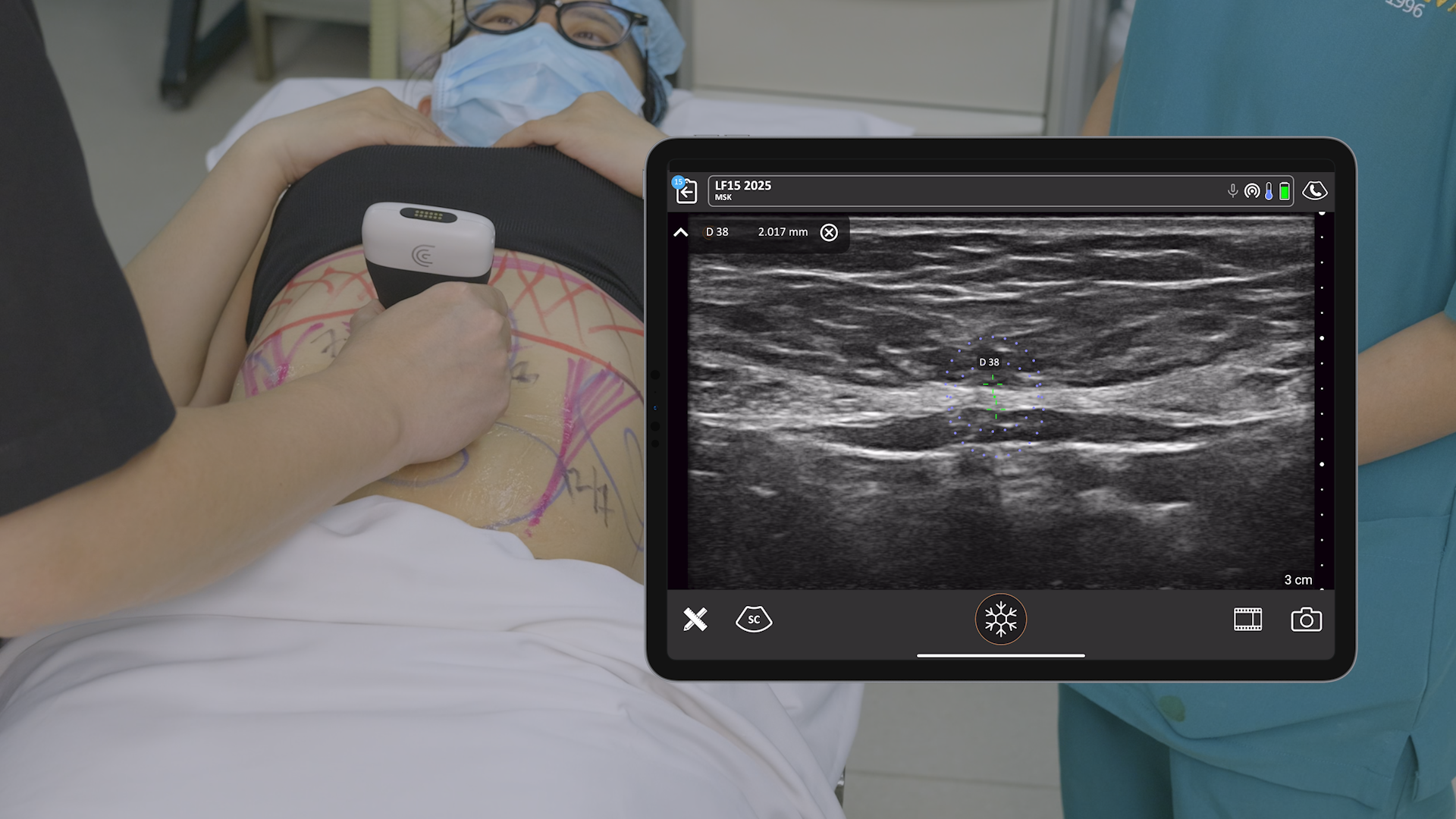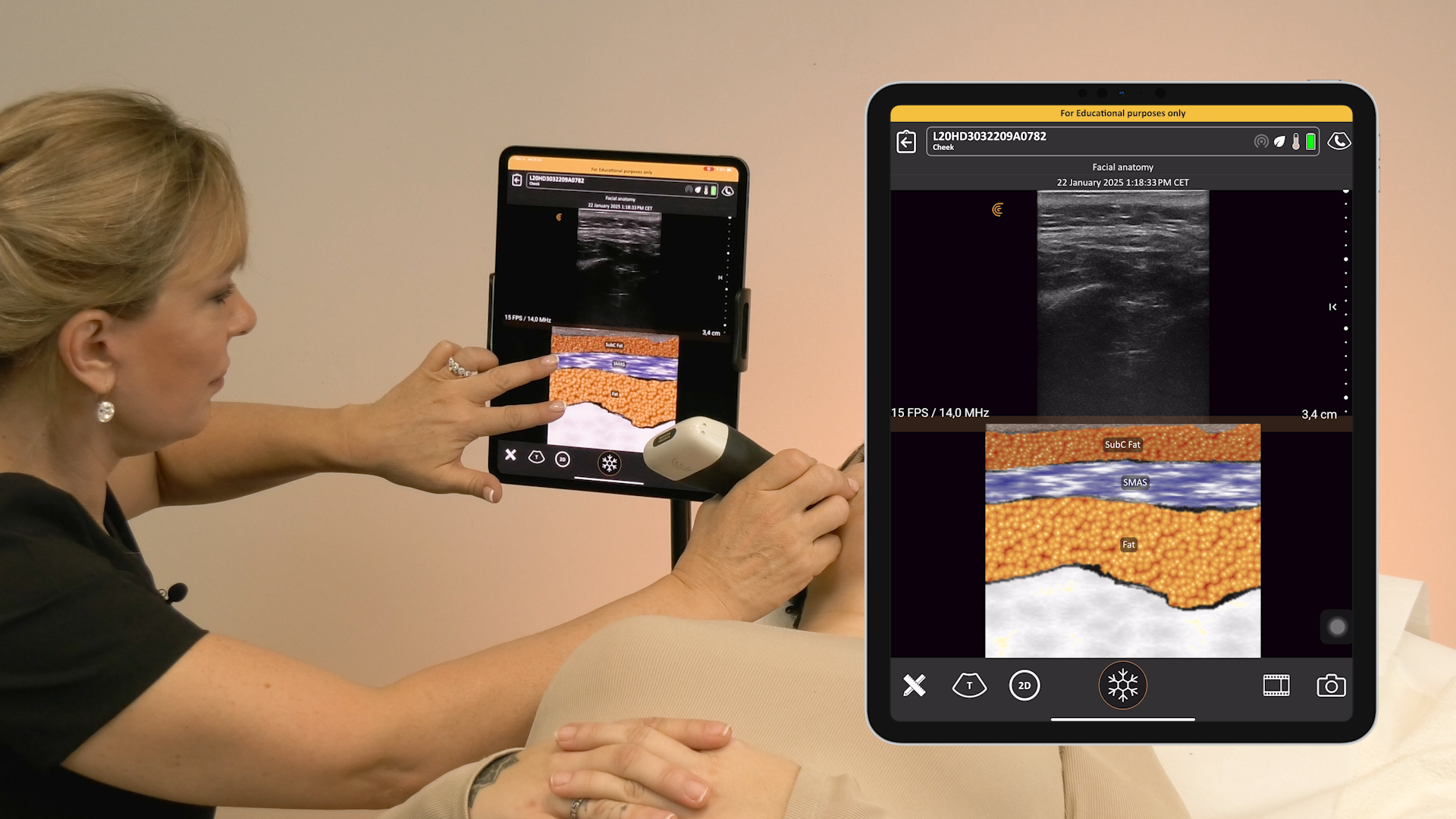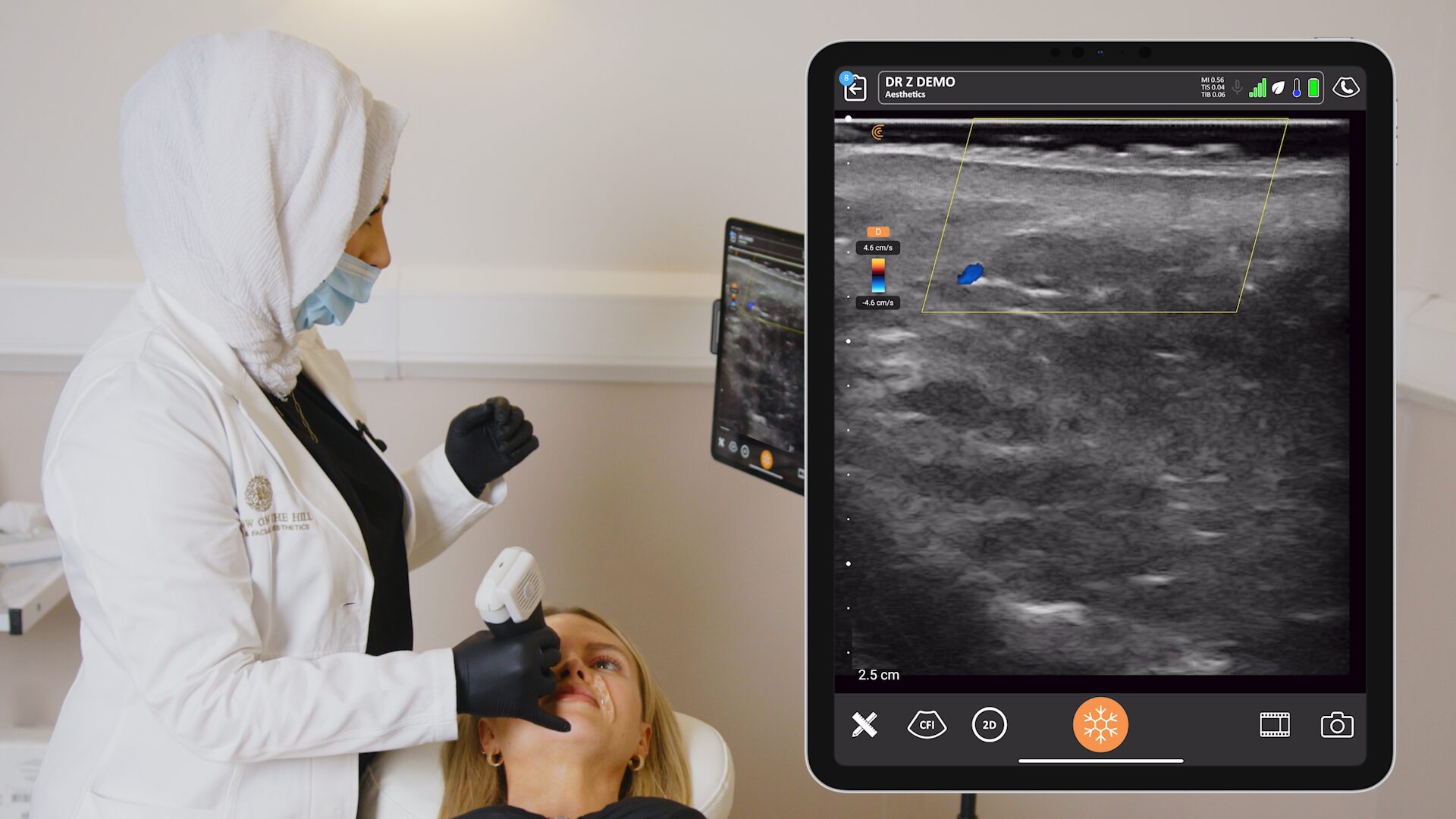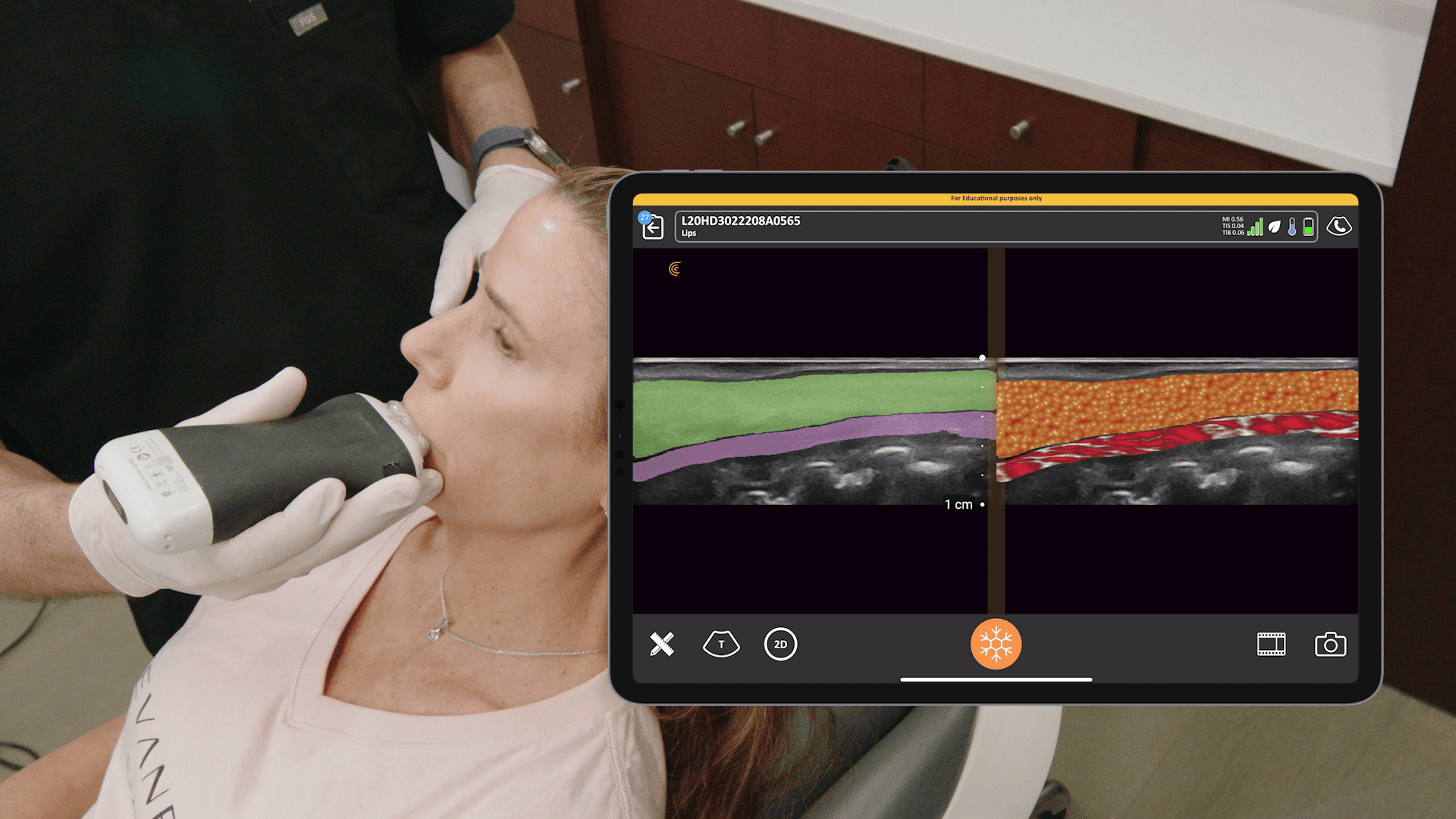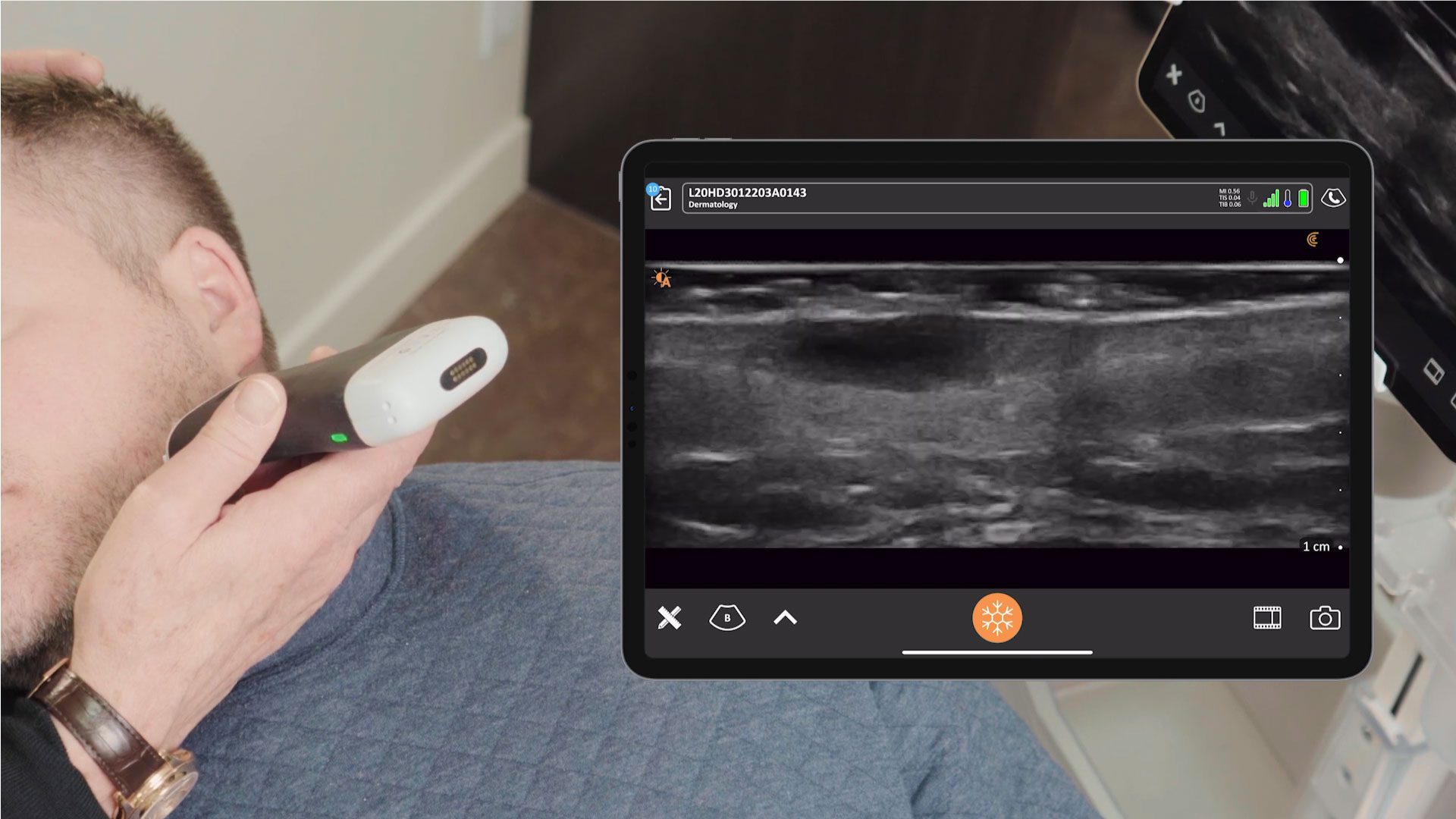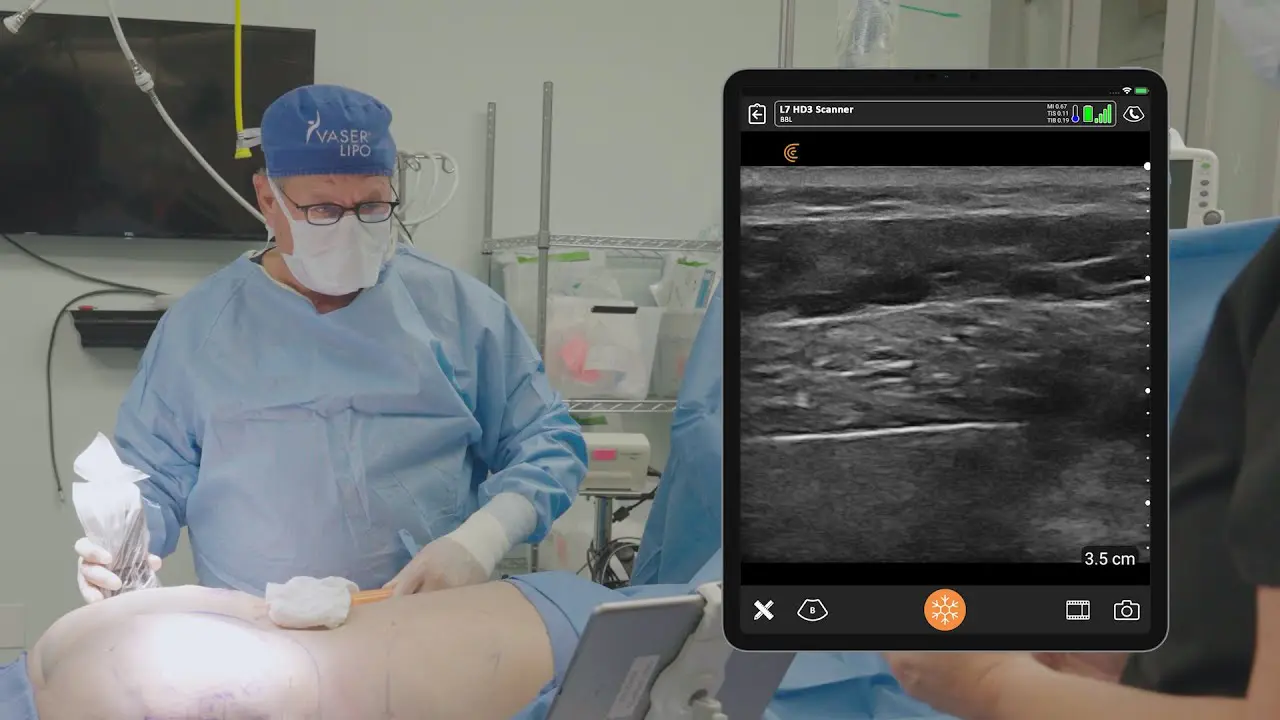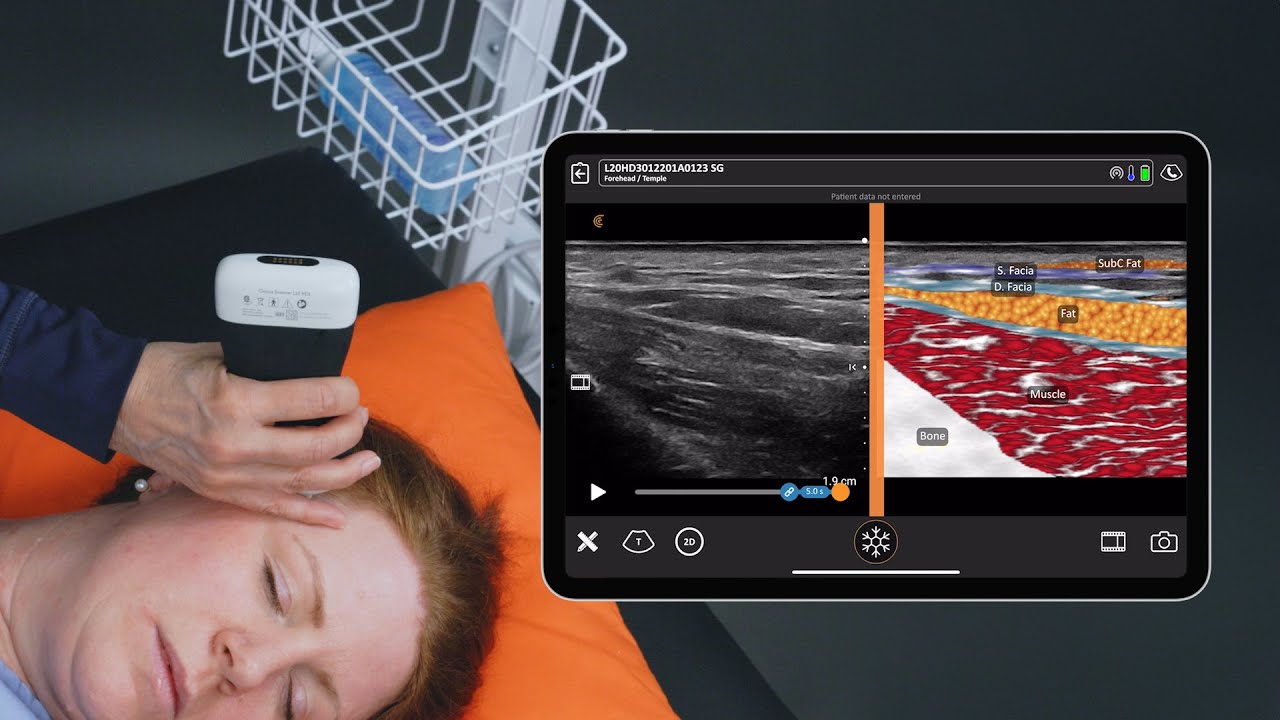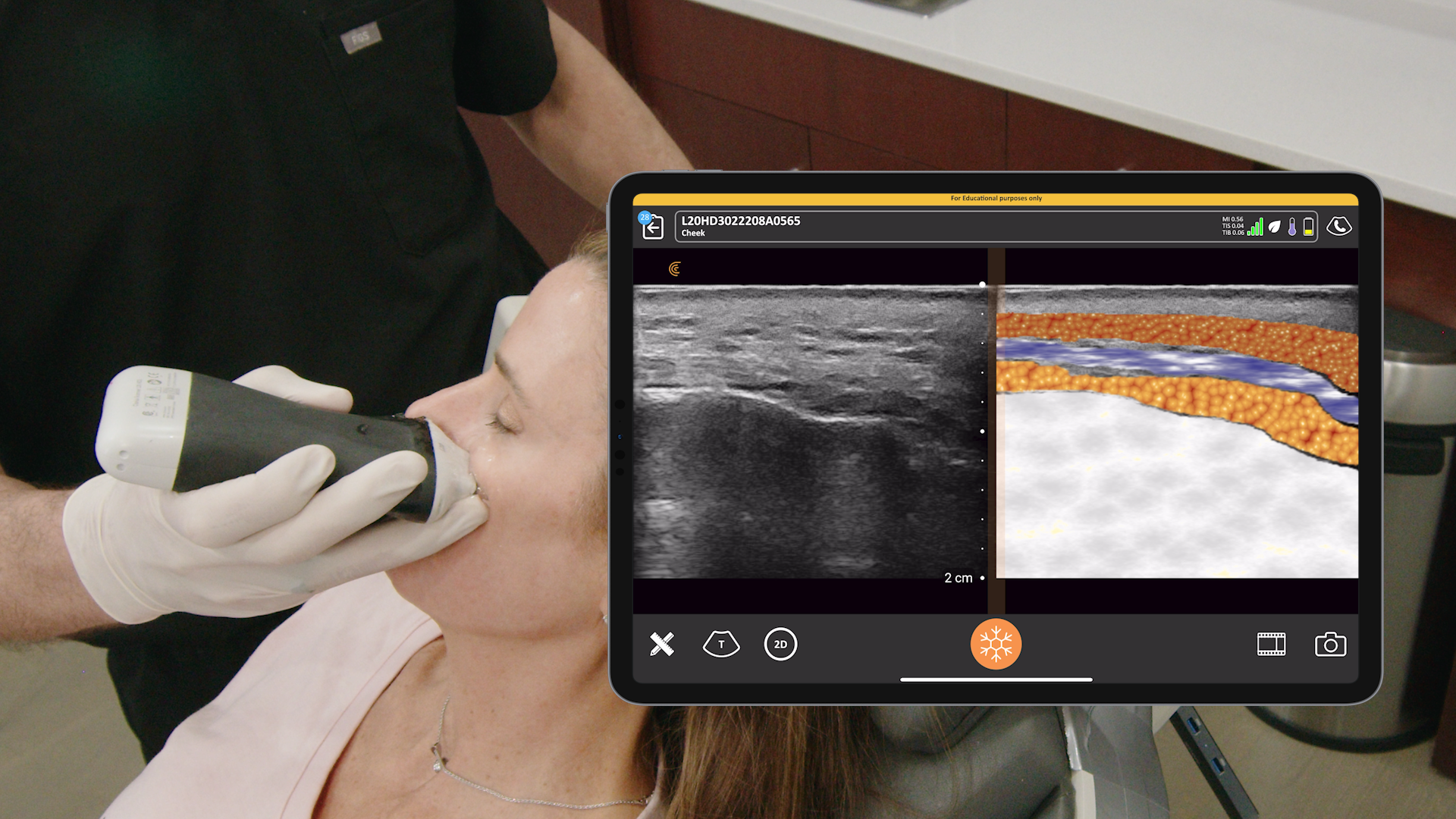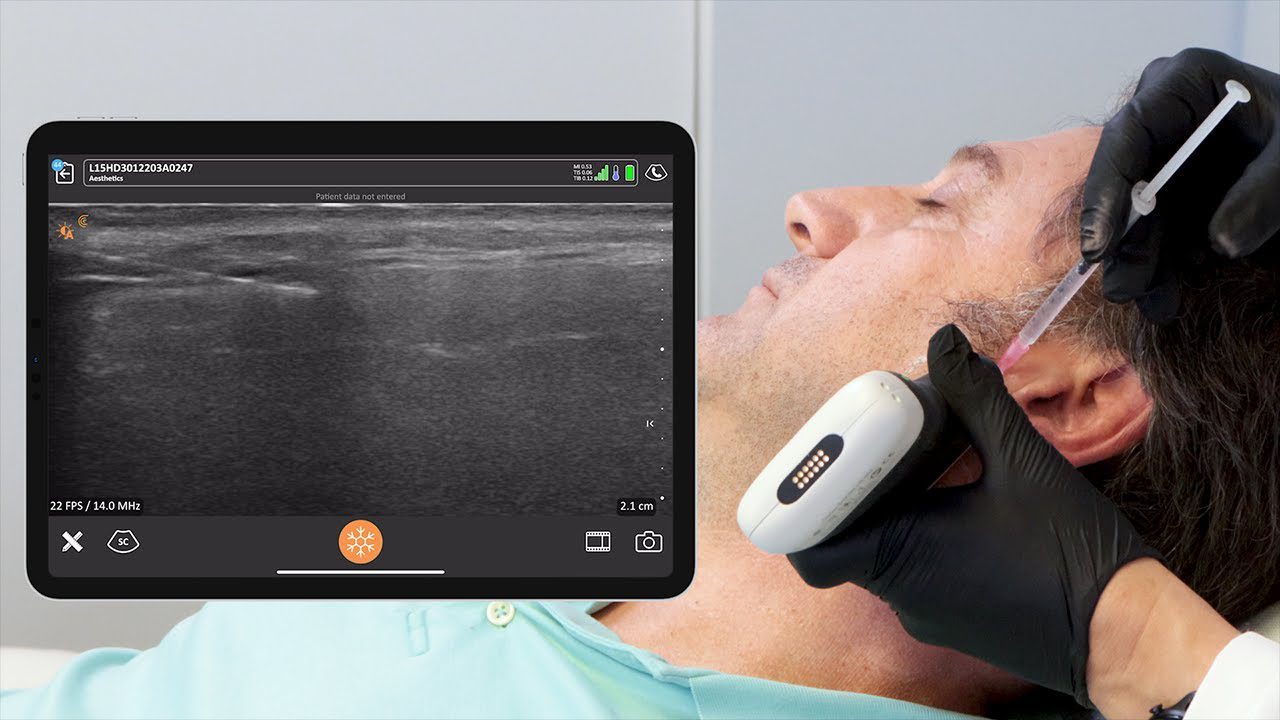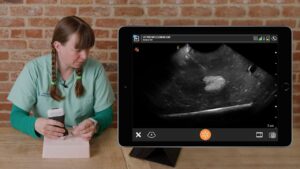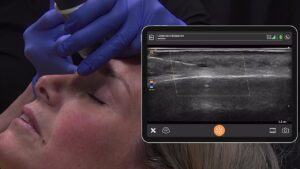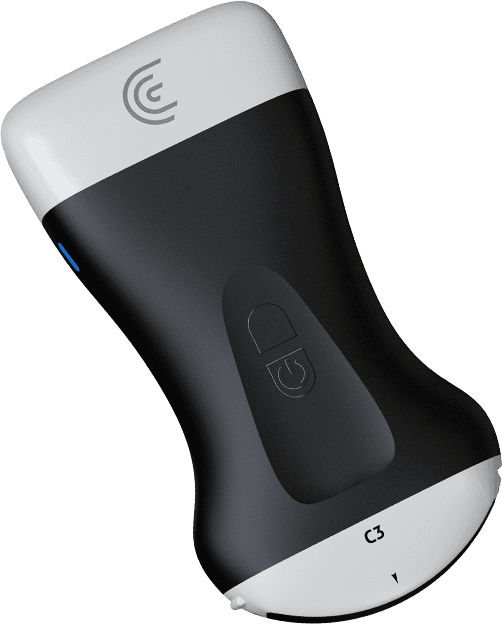In 2021, when Dr. Zainab Al-Mukhtar heard that aesthetic patients suffering from a complication that required ultrasound to alleviate a blockage were having difficulty getting access, she decided to look into getting an ultrasound device for her clinic in London, England. She and her colleagues purchased their first Clarius handheld ultrasound systems a few weeks later. They began their training journey shortly after and continue to train to this day.
Like with any field of medicine and with any new techniques, training is ongoing but it’s been a fantastic journey,” she says. “I travelled, I read a lot and I collaborated with colleagues. All of us were in the same boat and we all were learning together. But I leaned on the experts that we have globally, which was excellent.”
One of the earliest injectors in the UK to adopt facial ultrasound, Dr. Zainab is now considered an expert in complication management. She often receives referrals for a diagnosis or second opinion for which she uses her Clarius L20 HD3 scanner.
This has forced me to dive into the world of complications, to read more papers, and to explore what we know and what we don’t know in aesthetic medicine. It has created a new focus in my career, actually,” she says.
Dr. Zainab is no stranger to expanding her clinical expertise and competence. Trained as a dentist, she practiced aesthetic dentistry for 13 years and has been focused on facial aesthetics for the past 10 years. She is a national trainer in aesthetic injectables and owns a clinic called Harrow on The Hill Dental and Facial Aesthetics where she is the clinical lead in facial aesthetics. She consistently uses her Clarius scanner to map high-risk areas prior to a procedure and uses it for ultrasound-guided injections for high-risk procedures.
I now make a point of pre-scanning the temple, the nose, and the piriform fossa and indeed, the center of the chin if I’m using a bio stimulator that is not easy to dissolve,” she explains. “But always, the nose, the piriform fossa, and the temple. So, I pre-scan. In some situations, I use it for ultrasound-guided injections of filler and unique circumstances where I see that it’s necessary. So, for example, in the nose when I’m treating the lateral aspect of the nose, when I am treating the whole nasal labial fold subcutaneously and when I’m treating the temple in the subcutaneous or interfacial plane.”
Watch our 5-minute interview with Dr. Zainab to learn how she thinks Clarius ultrasound enhances procedural safety and improves patient trust.
Free Webinar: Learn Dr. Zainab’s Techniques for Safer Nonsurgical Rhinoplasty
Nonsurgical rhinoplasty continues to increase in popularity worldwide, and yet remains the highest risk area of the face to augment due to its wide vascular variability and connections to the supply of the eye.
Join us for a one-hour webinar with Dr. Zainab Al-Mukhtar to learn her technique for planning safe injections in the nose by identifying anatomical structures, including blood vessels.

Free Webinar
Ultrasound for Nonsurgical Rhinoplasty: Avoiding Vascular Complications and Improving Results
Improve patient safety with ultra-high-definition ultrasound for facial aesthetics
Clarius handheld ultrasound is the leading choice for aesthetics practitioners to clearly visualize facial and superficial anatomy in real-time to safely guide procedures like cosmetic fillers and confidently treat complications.
Visit our aesthetics page to learn more or book a virtual demo with a Clarius expert in your region.
